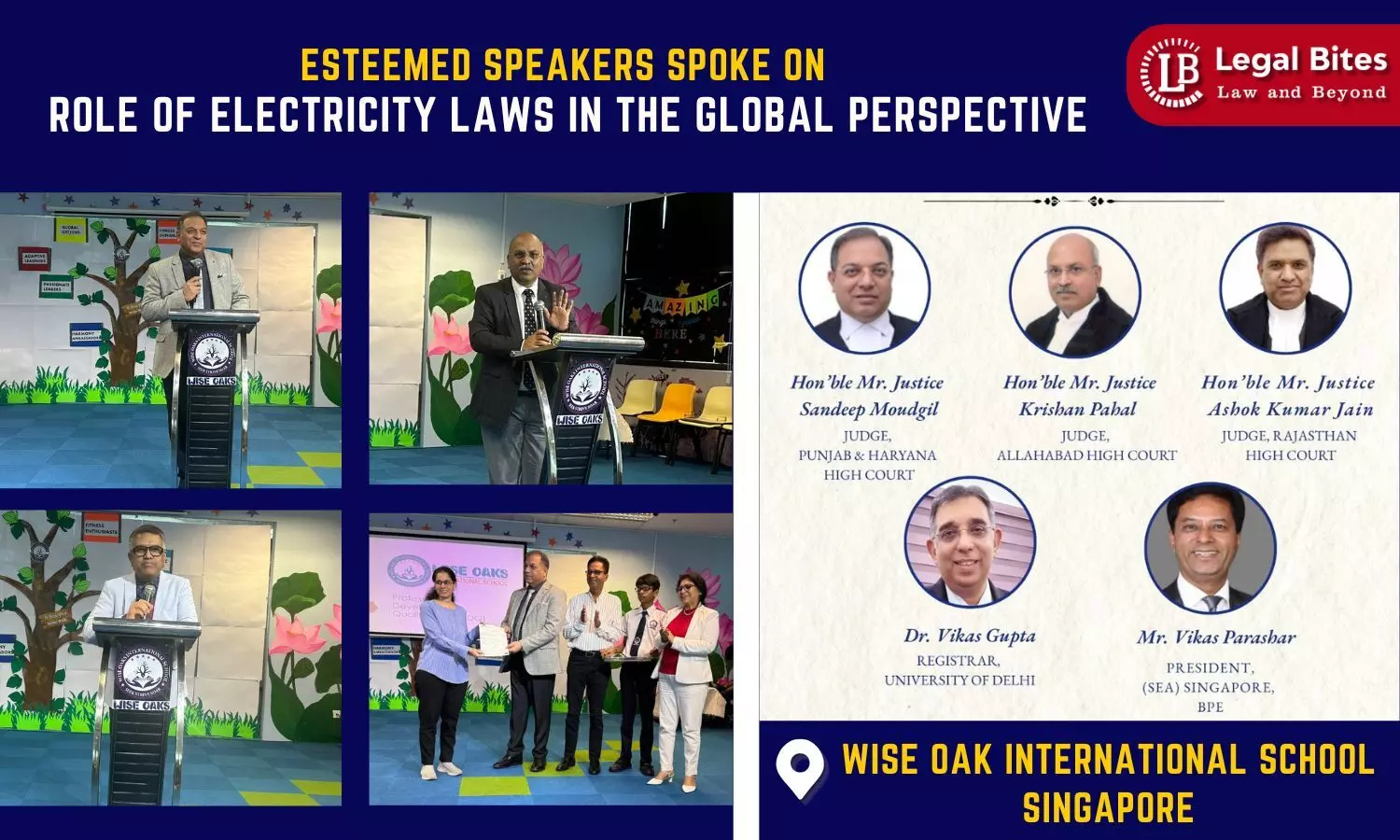
Wise Oak International School organized an insightful seminar on “Role of Electricity Laws in the Global Perspective,” bringing together eminent judicial minds and academic leaders. The distinguished panel included Hon’ble Mr. Justice Sandeep Moudgil, Judge, Punjab and Haryana High Court, Hon’ble Mr. Justice Krishan Pahal, Judge, Allahabad High Court, Hon’ble Mr. Justice Ashok Kumar Jain, Judge, Rajasthan High Court, and Dr. Vikash Gupta, Registrar, University of Delhi.
The event, attended by students from diverse backgrounds, reflected the school’s commitment to fostering legal literacy and awareness of global regulatory frameworks shaping the future of sustainable energy.
Justice Sandeep Moudgil’s Visionary Address
Delivering the keynote address, Justice Sandeep Moudgil captivated the audience with a profound reflection on how electricity law has evolved into a “civilizational concept shaping equality, justice, and sustainability.”
Tracing the journey of electricity regulation from Thomas Edison’s lightbulb to modern renewable frameworks, Justice Moudgil noted that the story of electricity is inseparable from the story of law:
“When we speak of electricity, we speak of a story not just engineered in wires but inscribed in the collective struggle for equality and justice.”
He emphasized that as nations navigate the energy transition, law must ensure fairness, access, and environmental responsibility. Drawing comparisons between the U.S. New Deal, EU’s unbundling reforms, China’s state-regulated renewable grid, and India’s Electricity Act, 2003, he highlighted that each legal model reflects a society’s core values and constitutional vision.
“India’s energy law embodies the belief that law, when guided by conscience, can transform not just economies but the very ethics of development,” he remarked.
Justice Moudgil urged policymakers, jurists, and future lawyers to treat electricity law as a moral and constitutional responsibility:
“The globalization of law gives us a rare opportunity to build a shared framework where energy becomes a bridge, not a barrier — ensuring that the light we generate today does not dim the possibilities of tomorrow.”
Justice Krishan Pahal: The Need for Uniformity in Electricity Laws
Justice Krishan Pahal focused on the lack of uniformity in electricity regulations across India. He emphasized the necessity of harmonized policies to balance the interests of consumers, producers, and regulators while maintaining affordability and access to clean energy.
He underlined that judicial interpretation plays a vital role in bridging legislative inconsistencies and protecting the rights of vulnerable communities dependent on equitable energy access.
Justice Ashok Kumar Jain: Electricity Law and Environmental Justice
Justice Ashok Kumar Jain highlighted the intersection of electricity law with environmental protection and the Sustainable Development Goals (SDGs). He observed that future legal reforms must embed ecological consciousness and human rights safeguards within the structure of energy governance.
“Law is not only about compliance—it is about conscience. Sustainable electricity law must reflect both,” he noted.
Dr. Vikash Gupta: The Academic Perspective
Dr. Vikash Gupta, Registrar of the University of Delhi, appreciated the initiative of Wise Oak International School for hosting such a forward-looking discussion. He encouraged students to explore interdisciplinary learning—connecting law, science, and policy—and to view legal education as a means of social empowerment.
Felicitation of Young Achievers
The program concluded with the felicitation of bright and meritorious students from across India by all the distinguished guests. Their collective message to the students emphasized perseverance, intellectual curiosity, and ethical leadership.
The seminar was not only a celebration of legal scholarship but also a reflection of India’s evolving commitment to sustainable, equitable, and inclusive development in the energy sector.